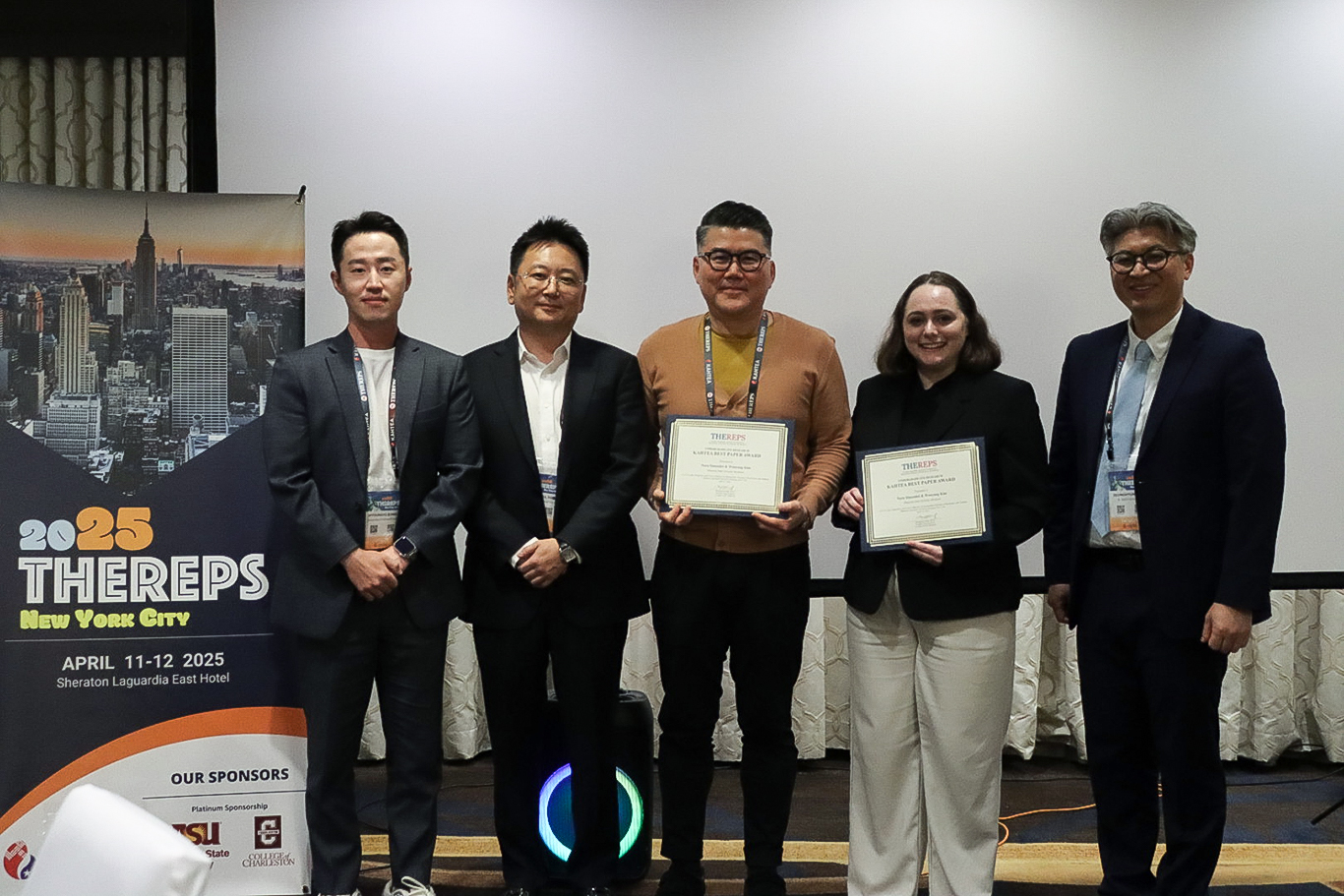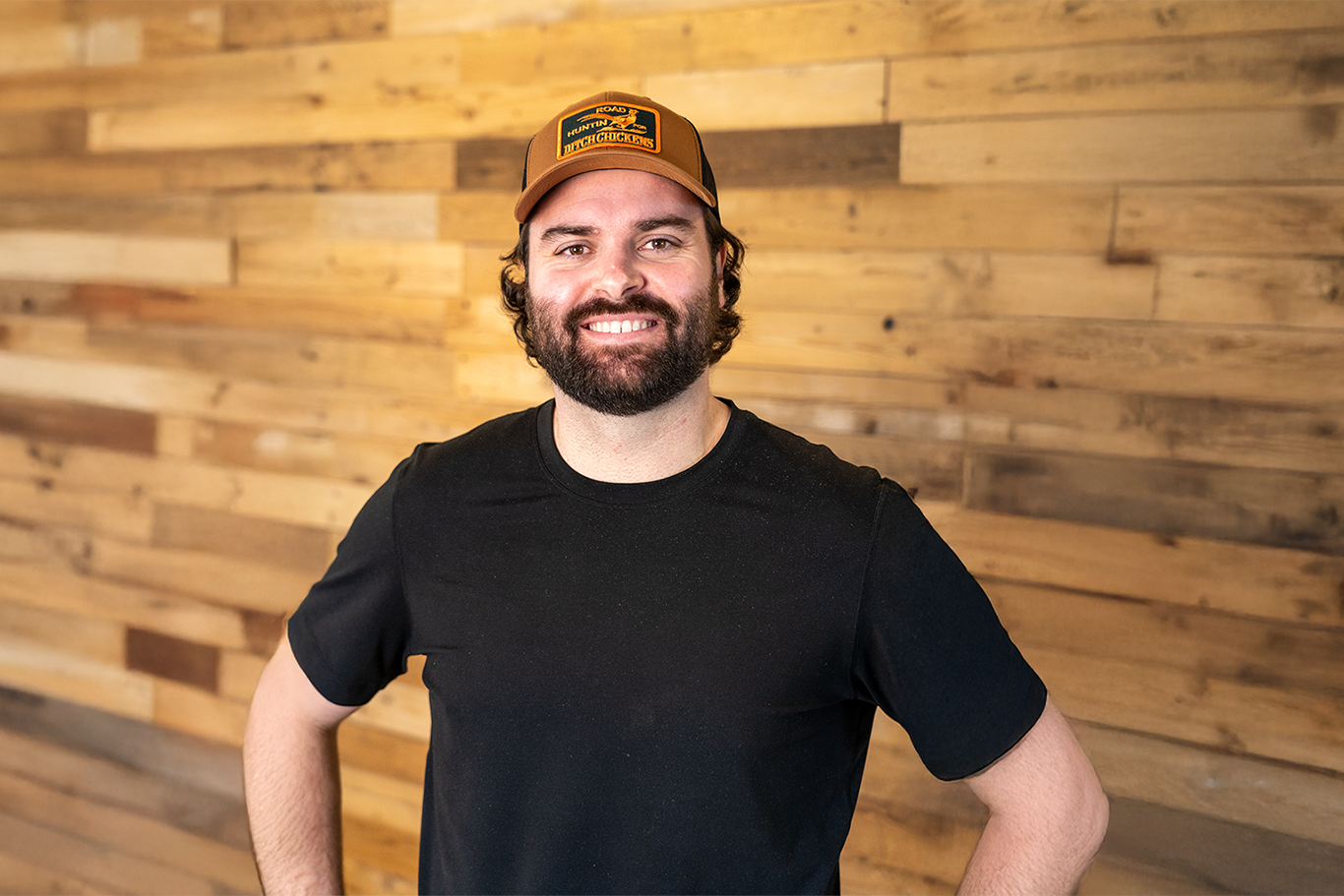Fish behaviorist recognized for contributions to science programs at MSUM
Behind Dr. Brian Wisenden's desk is a window with the bottom-half obscured by multiple fish tanks. The shelves below are filled with books on a number of different topics, ranging from human anatomy and statistics to fish biology and behavior.
Dr. Wisenden studies behavioral ecology, and has co-authored a book, six book chapters in various volumes, and over 100 research publications on fish behavior. This makes him one of the leading authorities on the topic, but he originally got his start at Minnesota State University Moorhead as an instructor teaching human anatomy.
"While I wanted to do research and teach my field of specialty, I needed to provide for my family. Once we got here, we found that we liked the school and the area and decided to stay," he says.
While this was a deviation from his expertise, he worked hard to make the anatomy course the best it could be, eventually establishing a cadaver program for students to better prepare for careers in the human health sciences, including medicine.
"I like to be all-in on things, so if I'm going to do something, I'm going to see how I can make it the best possible thing I can," he says.
When a new position became available within the Biosciences Department, Wisenden switched to being an ecologist, and handed off the cadaver-based anatomy courses to Prof. Patricia Wisenden, who has since taken the course to new heights.
This story has been the pattern of Wisenden's time as a professor at MSUM: establishing programs, improving them, and then handing them off to others.
Dr. Brian Wisenden is being recognized with MSUM's Outstanding Service award, and when asked why he thought he was receiving it, Wisenden responded by genuinely expressing that he didn't quite know why.
He then continued to tell his story: how he co-authored and led a grant to expand the Regional Science Center, created a brand-new biostatistics class from scratch, started the Tropical Conservation Biology class that includes a trip to Costa Rica over spring break, established and built up the Oceanarium, mentors student research every semester, and co-authored over 100 student research papers.
Wisenden's imprint on MSU Moorhead's science programs is extensive, working hard to improve and build upon everything that is given to him, but he's never lost his attitude of humility, and a love for what he does.
"I do what I do because it excites me, not because I'm seeking external recognition for it," he says.
Regional Science Center
MSU Moorhead's Regional Science Center is a place for students majoring in the sciences to conduct class activities and field research on several acres of land. The complex also includes an observatory for students who are conducting astronomical research. Wisenden was the lead writer on a large grant for the science center to acquire 89 additional acres, expanding its area to the 400+ acres of habitat it now occupies and protects.
This effort increases the footprint of MSUM and also enhances the biological integrity of adjacent lands owned by the MN DNR (Buffalo River State Park) and The Nature Conservancy.
Courses
Wisenden has created a number of new classes at MSUM, including Biostatistics and Tropical Conservation Biology. Biostatistics was created as an applied, hands-on statistics course for biology students that is focused on hypothesis-testing using common patterns of biological data. This course prepares students to apply the correct procedure for each pattern of data, how to make software conduct the test, and how to interpret the results of the test.
"Data analysis really brings home a practical value of being competent with numbers," Wisenden says.
Wisenden's doctoral field work was a study of mating systems and parental care patterns in cichlids (a type of tropical fish) in Costa Rica. It was this research where Wisenden truly found his passion for studying fish behavior. Wisenden, and colleague Donna Stockrahm, created Tropical Conservation Biology in 2002 based on Wisenden's PhD experiences.
Costa Rica is very biologically diverse and is one of the global leaders in conservation of biodiversity and the natural environment. As a part of the course, students spending 15 days immersing themselves in the forests of Costa Rica to learn about ecotourism, conservation, and untouched wilderness research.
While Wisenden enjoyed teaching these classes, both Biostatistics and Tropical Conservation Biology have been handed off to bioscience professor Chris Merkord.
Oceanarium
In 2014, students arrived back on campus after their trip to Costa Rica wanting to start a tide pool, inspired by the tide flat and tide pool habitats they studied overseas. Wisenden guided the students through the process of applying for funding and helped them create a working model tide pool. The project eventually expanded into what we now know as the Oceanarium.
"As we set up the tide pool, the interest just grew and grew and more people were starting to be engaged with it," he says.
The Oceanarium continued to grow and gain more support, welcoming K12 and YMCA groups for tours and field trips, and it eventually got too big for Wisenden to take care of it himself.
"It's my hobby outside of my day job, but we needed a dedicated facility coordinator who has the time to run it," he says. Katie Hanson, an alum of the oceanarium experience, is currently in that role.
MSUM now offers internship courses where students can acquire skills on how to run and upkeep the Oceanarium, as well as teach K12 students and others using the facility. The Biosciences department also offers a Marine Aquarist Certificate for students interested in pursuing a career in the marine sciences. A number of Oceanarium alumni are now marine biologists.
Student research
While Wisenden has been involved in many things throughout his time at MSUM, what he is most proud of is mentoring undergraduate research students.
"My biggest accomplishment, I think, has been the mentorship of undergraduate research," Wisenden says. "It's a really important experience for students to have as an undergraduate. They get to go out and be a real scientist."
There are 38 students conducting research closely with bioscience faculty this semester, and Wisenden is mentoring 12 of them. Currently, 185 undergraduate students have co-authored peer-reviewed research papers with Wisenden.
"To co-author a paper as an undergraduate really sets up students for success in applications for scholarships, graduate school, and med school because it indicates excellence and dedication in extracurricular activity," he says.
Brian Wisenden is being celebrated for his enormous contributions to MSUM's science programs. Whether it was creating new courses, mentoring students, writing proposals to expand campus resources, or paving the way for new hands-on research experiences, Dr. Wisenden has gone above and beyond in his service to MSU Moorhead.
Congratulations to Dr. Wisenden for the Outstanding Service award.
Biology degree
A Biology degree from MSUM is the best regional choice for students aspiring to work in human health, molecular biology, animal and environmental science or pursue graduate schools. Students are afforded hands-on experience with sophisticated equipment similar to that found in professional settings.
Learn more about Biology


